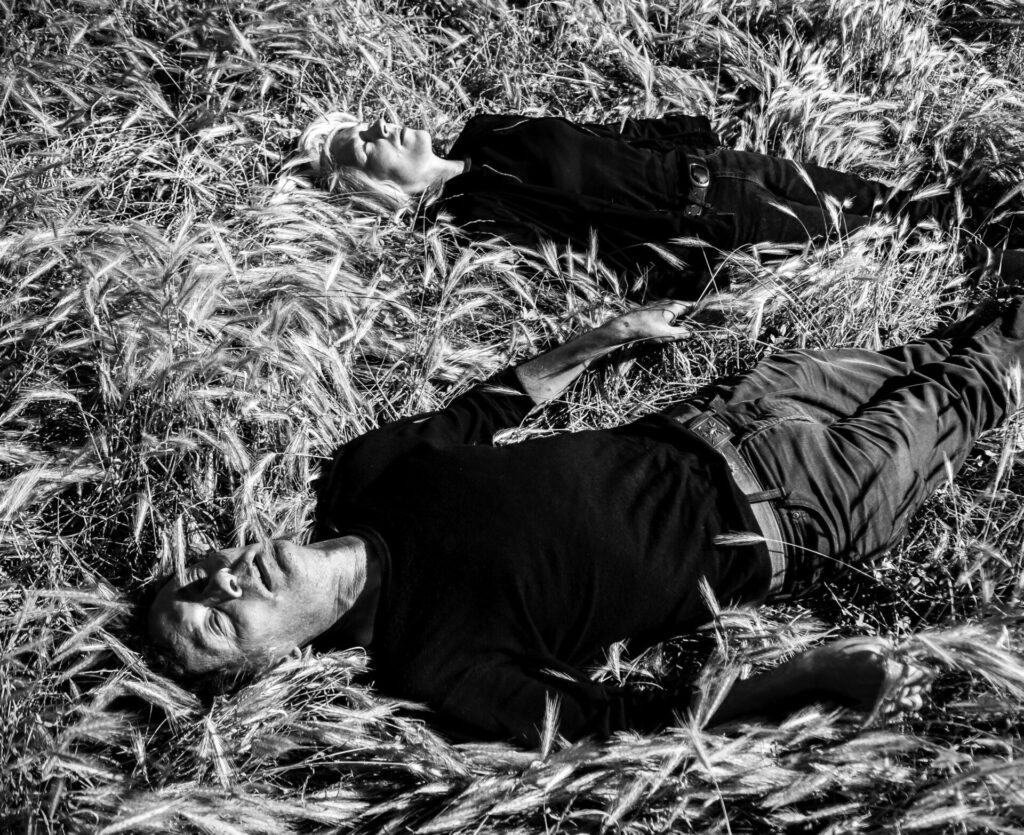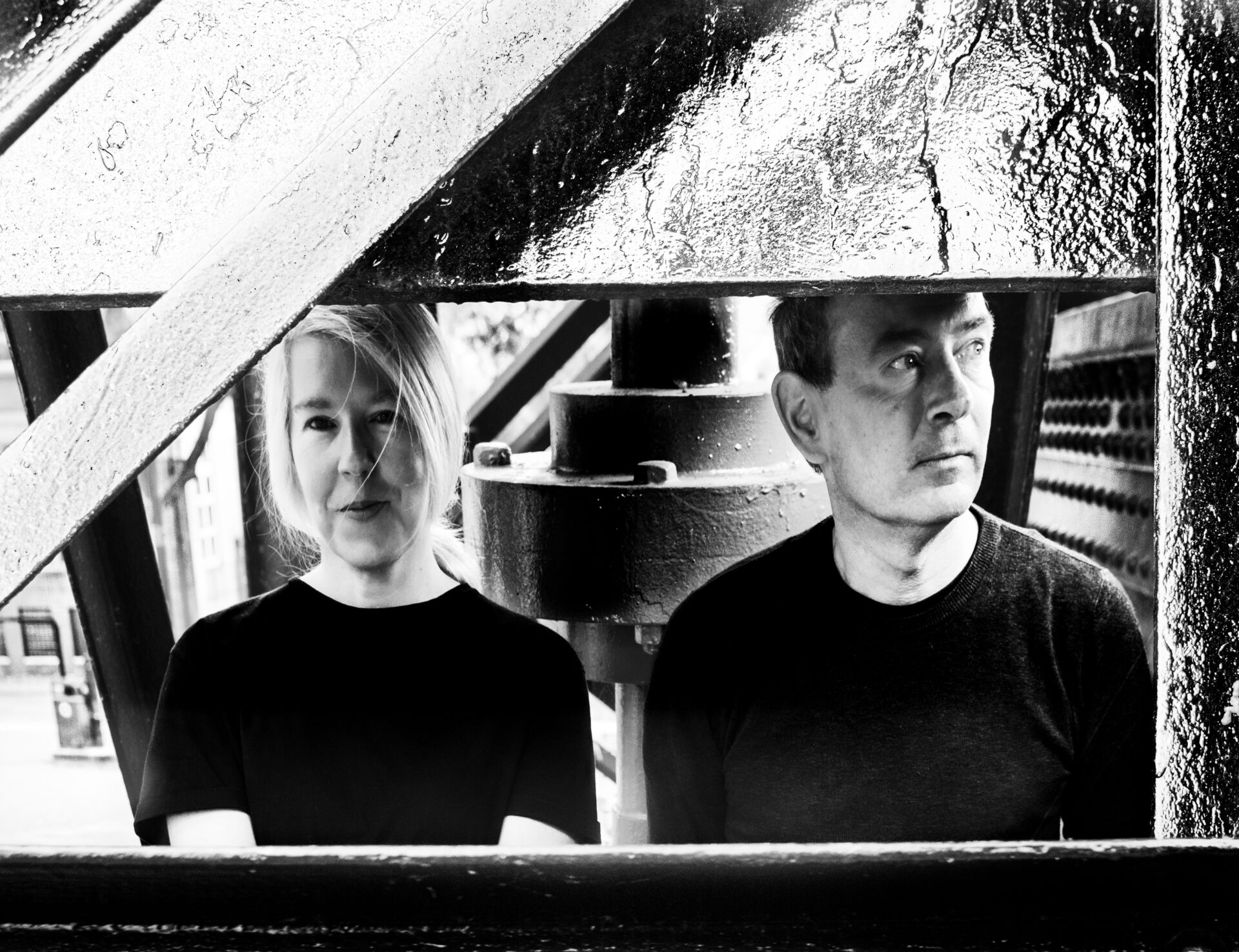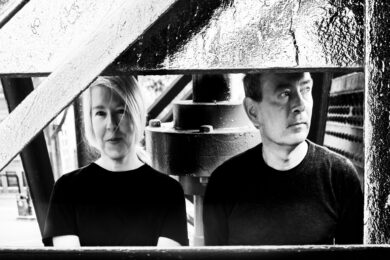“There’s no starting point for me,” says Mark Clifford with easy energy in a recent chat. “I’m constantly making music, so I guess I go through ups and downs with it. I might make music for a year and there’ll be maybe a two month period where I’m really happy with everything I do. Then I’ll think, ‘Okay, this could be a record here.'”
Clifford speaks with plenty of experience under his belt, having regularly recorded and released music for well over three decades at this point, exploring the various intersections of electronic experimentation, rhythm possibilities and rock approaches from his earliest days. While his various solo pursuits such as Disjecta and any number of collaborative efforts and remixes speaks to his regular creative churn, it’s his work in Seefeel, the striking group he founded in 1991 which spoke to all of those possibilities and more, which has rightly helped make his creative name.
The group’s core partnership of Clifford and Sarah Peacock, more recently accompanied by the rhythm section of Shigeru Ishihara aka DJ Scotch Egg and Boredoms veteran Iida Kazuhisa, has continued to circle back with new activity every so often in the 21st century. Following an extensive 2021 rerelease of the band’s first incarnation’s remarkable early work on the Warp label, Rupt + Flex 94 – 96, 2024 brings their first wholly new longer effort in over a decade, the six-song EP Everything Squared.
Starting with something close to a trademark sound in ‘Sky Hooks’, with Peacock’s serenely mysterious, FX-touched tones floating through a Clifford arrangement which balances steady rigorous drive and sparkling, strange depths, Everything Squared feels both like a continuation from Seefeel’s earlier work and a new, compellingly strange wrinkle. The tight loops and chirps mixed with dub-facing bass on a song like ‘Multifolds’ provide even more concrete callbacks to their earliest days on Too Pure via 1993’s Quique, while Peacock’s heavily treated vocals used as melodic loops on ‘Hooked Paw’ produce wonderfully unusual sonic collages. Meantime, the circular shimmers of feedback on ‘Lose The Minus’ and the slow echoed sonic punches on the concluding ‘End Of Here’ add a strong but never overbearing sense of weight to proceedings in turn. Add an excellent and sympathetic mastering job by Pole’s Stefan Betke to it all and the result is thoroughly entrancing.
According to Clifford, the songs themselves have been kicking around in some form since the last burst of regular studio and live work from the group in the late 2010s, just prior to the pandemic. “I was finalizing these particular tracks but we were already in a point where we couldn’t really meet up anyway,” remembers Clifford, “and [Peacock] had moved to Berlin. Pretty much everything since then, I’ve basically gone down my own path; Sarah basically leaves it to me. [She’s] happy to come and do a few bits of vocals and then allow me to fit them into the tracks or mess around with them. It’s like a one man project, the EP, apart from the bass where Shige did contribute when he came to the UK the last time I saw him.”
The shorter nature of the release belies the sheer amount of work the band collectively put into it beforehand, with Clifford at one point referencing the existence of a folder of work that had something upward of 120 compositions on it. (“They all just mutated from each other!” he adds with a laugh.) But beyond that, while there’s senses of callbacks throughout Everything Squared, what’s also evident is the sense of Clifford not simply trying to recreate the past but push the boundaries of combinations and sonics that had been worked with before. It’s sometimes very subtle, but it’s easily one of the best headphone listens out there of recent times, where you can almost feel as much as hear the deeper touches in the songs – odd rhythm touches, sonic decay, even more carefully interwoven parts from Peacock and much more besides.
When this is put to Clifford, he concurs and elaborates on how his process worked on these new compositions, using ‘Sky Hooks’ as an example. “If you listen to the first version, it’s not radically different,” he explains, “but there’s a lot more treatments on the vocal and there’s a lot more thought going into the placement of things. In the second version, it’s not radically different. You would recognize the track, but in the past I might have just left the version as it was and then moved on. This time I was very focused on, ‘How can I be happier with this vocal? How can I be happier with the way the guitar sounds or the way the rhythm and bass go together? Have I got too much going on here? Have I got too little?’ I was very aware of all of that, so I was constantly just trying different things, different versions, until I was happy with a particular mix, which is something I haven’t done before very much.”
Clifford later elaborates on this difference in approach by looking in detail at how he approached one of Seefeel’s earlier classics in more recent years. ‘Spangle’, which originally appeared on the group’s 1994 EP for Warp, Starethrough, rapidly became both a signature song not only for the original lineup of the group but the label and experimental techno as whole, with Peacock’s arrestingly cool vocal elements surrounded by a slow building combination of sparkling tones, chimes and beats. “‘Spangle’ is a track people really love,” Clifford agrees by way of explanation, “but it could have been so much better if I just worked on the production a bit more, presented it in just a slightly different way.”

In 2019, the newer incarnation of the group returned to it for a formal rerecording as a one-off single, its elements still familiar from the get-go, but, per Clifford, now with a new level of attention given to the overall result. The familiar initial loop is still a striking circular chime, but with a slightly calmer feeling, the beats surrounding what can almost be called a little more room to breathe, as a couple of key supporting parts seem almost to be heard more clearly for a first time. “I think the original version has its own sound,” Clifford muses. “It is not that you can’t do something quickly and then it’s not good. I just don’t think it satisfies me anymore. In my head I want to release music which I’d listen back to and think, ‘I’m still happy with that now.’ You grow up and you think, ‘I could have done that so much better.’ Whether other people hear that is another matter, but I can’t make music for other people.”
It could easily be guessed that some of this new approach in detail comes from the now near-infinite number of possibilities to create and manipulate sound via successive generations of technology, but Clifford describes himself as “less is more,” relying on what he terms as a small amount of pedals or plug-ins to create the basis of his work. “I don’t want to get carried away by what the machines can do rather than what I can do,” he adds at one point, and it’s this sense of human creativity within a seemingly boundary-determined superstructure that has arguably underpinned Seefeel’s work as a whole, perhaps no surprise given the innately biological terms that make up the band’s name. For Clifford, this sense of variance and potential surprise is clearly key.
“Everything’s so sophisticated in terms of equipment that you can just put a guitar through an effects pedal and you think, ‘Wow, that’s cool,'” he offers at one point in the conversation. “But anyone else could have done the same thing. That ceases to interest me then because I’m not interested in doing things which are simple. I don’t think less of people for doing that, but it just doesn’t interest or excite me much. The artists I like who also like that, I feel like they really squeeze the life out of equipment and they don’t just settle on the first sound or the first idea. They really hone in on a particular idea or a sound and think ‘How can I get the best out of this sound?’ rather than having a kind of ‘that will do’ attitude.”
Something of this sense crops up again later in conversation, when it’s suggested that the kind of electronic combinations Seefeel pursued have a potential origin point in the remarkable albums by the German group Harmonia. In agreeing, Clifford notes how that band’s own work can be seen as distinct in comparison to their contemporaries, to the point of creating its own form of intriguing mystery.
“The thing I love about [Harmonia’s] music is that it just seems to come,” he says at one point. You can’t quite tell where it’s come from. Neu! is beautiful and I love Neu!, but you can hear the setup in it, what’s going on. It’s a drummer, there’s a bass. Whereas there’s something about [Harmonia] where I’d be asking the same questions that you’ve asked me. How did they start this track? Was this the drum machine first or was it this weird guitar sample? I love it when you can’t place how something was arrived at.”
In looking back at the history of Seefeel, with the original lineup seeming to shift sonic ideas almost release by release in its 1990s run, this kind of creative restlessness both is clearly audible in the work and helps explain why they went on hiatus when they did, with Clifford leaning into his work as Disjecta while Peacock, along with rhythm section Daren Seymor and Justin Fletcher, went on to form Scala. “One of the reasons I think they struggled in the early days is because every time we approached a new album, just as they’d kind of settled into a particular sound, I wanted to do something different,” Clifford elaborates. “In five years’ time, it’s possible I might still look back at [Everything Squared] and think, ‘I could’ve done that so much better.’ But I sense my musical brain is on a kind of plateau now, it’s more steady, more focused.”
Even while Clifford enjoys this new sense of direction, Seefeel in a strange way still seems to be a proverbial square peg forever trying to be fit into a series of different descriptive holes, something he regards with slightly resigned bemusement even as the group continues to find new listeners as a result. “The whole genre thing has been a bit of a strange one for us,” he suggests, “because we’ve been put in pretty much every single bag possible over time. It’s interesting when Pitchfork have their lists and we’re in IDM lists or shoegaze lists, it starts to get almost confusing for us as well what we actually are. But then you realize that it doesn’t matter, it’s music.”
With the band returning to live performance in late August with a sold out date at Cafe OTO in London, Clifford indicates more is on the horizon on that front – he enthusiastically mentions the ease and great reception they got on their American tour in 2019 and hopes to return. (“A good example,” he says at one point in describing the tour’s success, “is customs. We just imagined it was going to be hellish and they literally waved us through. They didn’t even check our gear!”) There’s also plans for a full Seefeel album next year, and in keeping with Clifford’s own steady level of creative work, he indicates more things will happen as they do. He adds that, should the need ever arise, he has an idea about how to wrap things up if required:
“I have a massive amount of music, which I never play to anyone. There’s enough music to release two or three albums a year. One day I’m convinced that when Seefeel just hits the floor, no one’s interested anymore, I’m just going to vomit music on stage. It’s going to be thousands of tracks, warts and all!”



